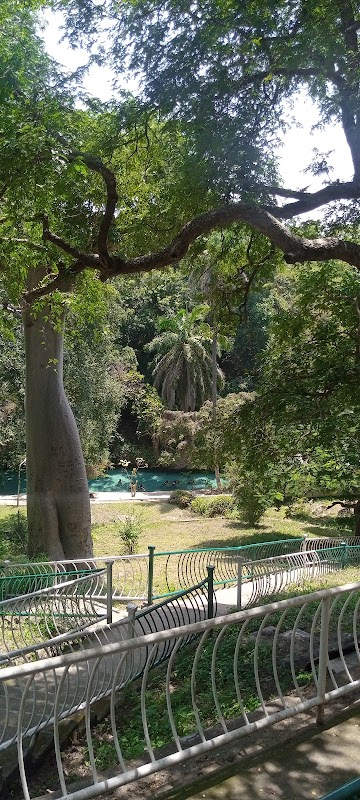
Bauchi’s cultural festivals offer a vibrant encounter with Hausa and Fulani traditions, merging adrenaline-pumping horse parades with centuries-old music and dance. This guide helps you navigate festival dates, practical gear, and the rich cultural landscape of one of Nigeria's most spirited regions.
Choose Sturdy Footwear
Festival venues often include uneven, dusty streets and dirt paths. Wear durable, comfortable shoes with good grip to stay steady during parades and dancing.
Stay Hydrated in the Heat
Bauchi’s climate during peak festival season can be hot and dry. Carry water and plan frequent hydration breaks to maintain your energy and focus.
Plan Around Festival Dates
Most major events like Durbar align with Islamic holidays such as Eid-El-Kabir, usually between June and September. Book accommodations early to avoid sold-out hotels.
Pack Light Layers
Days are warm, but evenings can cool off unexpectedly. Lightweight, breathable layers help you adjust comfortably from daytime heat to cooler nights.
Rhythms and Revelry: Experiencing Cultural Festivals in Bauchi, Nigeria
Bauchi, Nigeria, pulses with life when its cultural festivals come alive, offering adventurers not just a glimpse but a full immersion into the heritage and spirit of the region. These festivals, held mainly in the city and surrounding communities, celebrate history, music, dance, and local traditions — all framed by the rugged landscape that challenges and invites travelers. The signature Bale Festival marks the Hausa and Fulani cultures with horse riding, wrestling, and vibrant drumming that commands both attention and respect. Meanwhile, the Durbar festival charges through the streets with colorful horses and riders parading to honor Islamic holidays, blending adrenaline with centuries-old customs.
Participating in these festivals places you in the heartbeat of Bauchi’s dynamic identity. Streets throb with rhythmic drumming, and every dance step or song carries stories passed down through generations. The air fills with the scent of local foods—grilled meats seasoned with spices from nearby savannahs—while marketplaces overflow with crafts and textiles that dare you to take a piece of Bauchi back home.
Planning a visit means syncing with the festival calendar, typically around Eid-El-Kabir and other Islamic celebrations, generally landing between the months of June and September. Practical considerations include preparing for large crowds, often on unpaved and sometimes uneven city paths, requiring comfortable yet sturdy footwear. Layers for warmer days and cooler evenings help navigate the coastal climate of Bauchi State, while hydration is crucial in the heat that pushes the environment to be as relentlessly vibrant as the festivities themselves.
Beyond the spectacle, these festivals offer a chance to observe Bauchi’s cultural fabric in its rawest form — a living conversation between past and present, set against rolling plains and the distant roar of the Jos Plateau. Understanding the significance of the rituals and the bravery displayed in traditional horse races amplifies the experience, inviting visitors to respect a culture fiercely itself.
Capturing the festival’s energy with your camera is an adventure on its own. Early mornings reveal calm street scenes ripe for portrait shots of locals preparing ancestral regalia, while sunset casts golden light that sharpens the colors and textures of costumes and horses. The festivals reward those who come prepared — not just to watch but to engage and appreciate one of Nigeria’s most vibrant cultural encounters.
Nearby Trips
All Adventures
Boat Charters
Water Activities
Adventures near Bauchi, Nigeria
Discover the unique and memorable adventures that make Bauchi, Nigeria special.
Frequently Asked Questions
When are the main cultural festivals in Bauchi held?
Most significant festivals, including Durbar and Bale, are aligned with Islamic holidays like Eid-El-Kabir, typically between June and September. Dates vary yearly based on lunar calendar observations.
Are the festivals suitable for children and families?
Yes, families often attend, but some activities, like horse races and wrestling, may require supervision due to crowds and dynamic movement. Preparing children for noise and crowds enhances the experience.
What cultural etiquette should visitors observe during festivals?
Respect local dress codes, avoid interrupting performances, and ask permission before photographing people. Engagement with community members is welcomed when approached politely.
Is it safe to attend these festivals as a solo traveler?
Bauchi is generally safe during festivals, but solo travelers should remain vigilant, stay in well-populated areas, and connect with guides or local hosts for added security and richer context.
Are there any hidden spots during these festivals worth visiting?
Check out the outskirts of festival venues where artisans craft costumes and instruments. These behind-the-scenes areas reveal intimate cultural processes rarely seen by tourists.
Can I buy authentic crafts and souvenirs at the festivals?
Yes, markets set up during festivals offer textiles, pottery, and jewelry directly from local artisans, providing authentic and ethically sourced mementos.
Recommended Gear
Comfortable Walking Shoes
Durable shoes with cushioning and grip handle the festival terrain and long hours on your feet.
Reusable Water Bottle
Stay hydrated in Bauchi’s heat; access to clean water can be irregular during large gatherings.
Lightweight Jacket or Shawl
Evenings cool down quickly. A light layer helps you stay warm without adding bulk.
Camera or Smartphone with Extra Battery
Capture dynamic festival moments, but be mindful of personal space and local customs when photographing.
Local Insights
Hidden Gems
- "The lesser-known Muslim neighborhood of Warji where intimate evening performances occur."
- "Quiet vantage points atop the Bauchi city hills offering panoramic festival views."
Wildlife
- "Bird species such as the Senegal Parrot and Red-vented Bulbul are common near festival grounds."
- "Monitor lizards can sometimes be spotted basking near rural festival outskirts."
History
"Bauchi’s festivals date back centuries, rooted in the Hausa and Fulani people’s proud traditions. Horse riding and wrestling were historically both entertainment and rites of passage, linked closely to community leadership and celebration."
